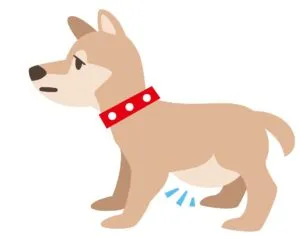Intestinal parasites, commonly known as worms, are an unwelcome but often unavoidable reality for many pet owners. While the thought of these creatures can be unsettling, understanding their signs, especially common issues like diarrhea, is crucial for your dog’s health. These internal invaders come in various forms and sizes, each capable of negatively impacting your canine companion’s well-being and development. Beyond individual health, an infected pet can also spread parasites to other vulnerable animals. Recognizing the tell-tale signs of a parasitic infection early on can help you seek timely veterinary guidance and care. Fortunately, with veterinarian-prescribed treatments, strict hygiene, and proper waste removal, intestinal parasites are generally manageable. After deworming, ongoing prevention, including a monthly broad-spectrum dewormer and biannual fecal tests, significantly reduces the risk of future infections. For more detailed information on specific types of parasites, you can explore articles like symptoms of roundworms and hookworms in dogs.
Recognizing Common Signs of Intestinal Worms in Dogs
Detecting intestinal worms in dogs often involves observing a range of symptoms, with some being more obvious than others. Early detection is key to effective treatment and preventing further health complications.
Visible Worms in Your Dog’s Stool or Around the Anus
One of the most immediate and alarming signs for any pet owner is the presence of visible worms in their dog’s stool. This often prompts a swift call to the veterinarian. Two common worm species you might spot are roundworms (Toxocara spp.) and tapeworms (Dipylidium caninum). Roundworms typically resemble strands of spaghetti, while tapeworm segments—which are actually egg packets, not entire worms—look like small grains of rice. Both roundworms and tapeworm segments are frequently found in feces. However, tapeworm segments can also be seen clinging to the hair around your dog’s anus or beneath their tail, indicating an active infection.
 Roundworms and tapeworm segments visible in dog stool
Roundworms and tapeworm segments visible in dog stool
Diarrhea: A Key Indicator of Worms in Dogs
Yes, worms in a dog can absolutely cause diarrhea, and it’s one of the most common clinical signs pet owners observe. Various intestinal parasites can irritate the gastrointestinal tract, leading to significant digestive upset. Whipworms (Trichuris vulpis), for instance, reside in the junction between the small and large intestines and the colon. Their presence causes irritation to the colon lining, resulting in watery diarrhea, which can sometimes be bloody or mucoid (containing mucus).
Beyond whipworms, other single-celled intestinal parasites like Giardia and coccidia are also frequent culprits behind parasite-induced diarrhea in dogs. These microscopic organisms lead to irritation, inflammation, and damage to the intestinal walls, severely hindering nutrient absorption. This malabsorption can have profound effects, particularly on puppies and kittens, leading to weight loss and malnutrition even if they are eating normally. Understanding can worms be passed from dog to dog is also important for preventing further spread, especially in multi-pet households.
 Dog experiencing vomiting and diarrhea due to illness
Dog experiencing vomiting and diarrhea due to illness
Vomiting Due to Worm Burden
When a dog carries a heavy burden of intestinal worms, it’s not uncommon for them to experience significant gastrointestinal irritation and upset, which often manifests as vomiting. In severe cases, a large population of adult worms can even cause a physical blockage in the intestine, leading to a backflow of stomach contents. Vomiting is frequently observed alongside diarrhea when a pet has worms, and in some instances, worms may even be visible in the vomit itself. During a veterinarian-prescribed deworming treatment, it’s considered relatively normal for a dog to experience mild vomiting as their body works to eliminate the dead or dying parasites.
Unexplained Weight Loss Despite a Healthy Appetite
One of the more perplexing symptoms of intestinal parasites is when a dog begins to lose weight even though they maintain a healthy, or even ravenous, appetite. As mentioned, parasites like whipworms, hookworms, Giardia, and coccidia directly damage the delicate lining of a dog’s intestines. This fragile, single-cell-thick tissue is responsible for absorbing essential nutrients from the food passing through the digestive tract, directing them into the bloodstream for distribution throughout the body. When the intestines are compromised by these invaders, the nutrients from the consumed food are simply not absorbed effectively. Consequently, a dog with a heavy worm burden will eat heartily but still exhibit noticeable weight loss, struggling to gain or maintain a healthy body condition. Regular flea and worm treatment for dogs monthly can help prevent this.
 A thin dog showing signs of weight loss
A thin dog showing signs of weight loss
Dull or Dry Coat
Your dog’s skin and coat condition often serve as a mirror reflecting their overall internal health. When intestinal parasites interfere with nutrient absorption, one of the visible repercussions is a noticeable decline in the quality of your dog’s coat. It may become dry, brittle, lose its natural luster, and appear visibly dull. In such cases, attempts to improve the coat’s condition through dietary supplements, special shampoos, or regular grooming often prove unsuccessful because the underlying issue of nutrient malabsorption remains unaddressed. A healthy, shiny coat is a good indicator of a healthy digestive system and effective nutrient uptake.
Scooting or Licking the Hind End
Observing your dog scooting their rear end along the floor or excessively licking their hind quarters can be a sign of discomfort or irritation around the anal area. While other conditions like anal sac impaction are common causes, the presence of rice-like tapeworm segments (egg packets) in your dog’s stool or clinging to their fur can also cause significant itching and inflammation around the anus. These segments can be incredibly irritating, prompting your dog to seek relief by dragging their bottom or persistently licking the area. A quick, careful inspection beneath your dog’s tail may reveal visible tapeworm segments, confirming the parasitic cause of their discomfort.
 Dog with a distended potbellied abdomen, possibly due to worms
Dog with a distended potbellied abdomen, possibly due to worms
Bloated or Potbellied Appearance
Abdominal swelling or a distended, potbellied appearance is a particularly common and concerning sign of roundworm infection, especially in severely affected puppies and kittens. In cases of high-volume infections, roundworms can multiply to such an extent and grow so large that they physically alter a young pet’s visible shape, creating a distinctively bloated or potbellied abdomen. This distention is not just cosmetic; it can be quite painful for the animal and may lead to a loss of appetite, episodes of vomiting, and in severe situations, even life-threatening intestinal blockages.
Lethargy and Weakness
Infected dogs often exhibit signs of weakness, fatigue, or generally low energy levels. Puppies and kittens, who would typically be playful and highly interactive, may instead appear unusually subdued, preferring to sleep for extended periods. This intestinal parasite-induced lethargy can stem from several factors. Ongoing nutrient malabsorption, due to the parasites disrupting the digestive system, can deplete a pet’s energy reserves. Dehydration, often a consequence of persistent vomiting or diarrhea, also contributes significantly to weakness. Furthermore, hookworm infections (Ancylostoma spp.) can lead to anemia, a dangerously low red blood cell count. Hookworms, with their aptly named hook-like mouthparts, are blood-sucking parasites that latch onto and feed from the intestinal lining, causing severe, potentially life-threatening anemia, particularly in young animals. Since red blood cells are vital for transporting oxygen throughout the body, anemic pets are visibly weak and lethargic. Finding the best worm flea and tick treatment for dogs is crucial for comprehensive protection.
 Lethargic cat resting, possibly a sign of illness
Lethargic cat resting, possibly a sign of illness
When to Seek Veterinary Care for Worms
While discovering worms in your dog’s stool can be alarming, it’s important to assess the situation calmly. If your dog is otherwise behaving normally, eating, drinking, and maintaining their usual energy levels, the situation is typically not a dire emergency. In such cases, you should schedule an appointment with your regular veterinarian as soon as possible for diagnosis and appropriate treatment. However, pet illnesses don’t adhere to convenient business hours. If your dog is experiencing more severe symptoms such as persistent vomiting, profound lethargy, significant discomfort, or severe, late-night diarrhea, it’s crucial to seek prompt veterinary attention. Early intervention can prevent minor issues from escalating into serious health crises. Consider exploring general preventative care, such as home remedies to prevent fleas on dogs, as part of a holistic approach to pet health.
Conclusion
Intestinal worms are a common health challenge for dogs, and understanding their signs is paramount for responsible pet ownership. The question, “Can Worms In A Dog Cause Diarrhea?” is definitively answered with a resounding yes, as various parasites directly impact the digestive system, leading to this and other concerning symptoms like vomiting, weight loss, and lethargy. Recognizing these indicators—from visible worms in stool to a dull coat or a bloated belly—allows you to act quickly. Always prioritize a professional diagnosis from your veterinarian, as they can accurately identify the type of parasite and prescribe the most effective deworming treatment. Beyond treatment, consistent parasite prevention, including monthly broad-spectrum dewormers and regular fecal tests, is essential for maintaining your dog’s long-term health and preventing future infections. Don’t hesitate to consult your vet or visit Dog Care Story for more comprehensive guides on keeping your canine companion healthy and happy.
